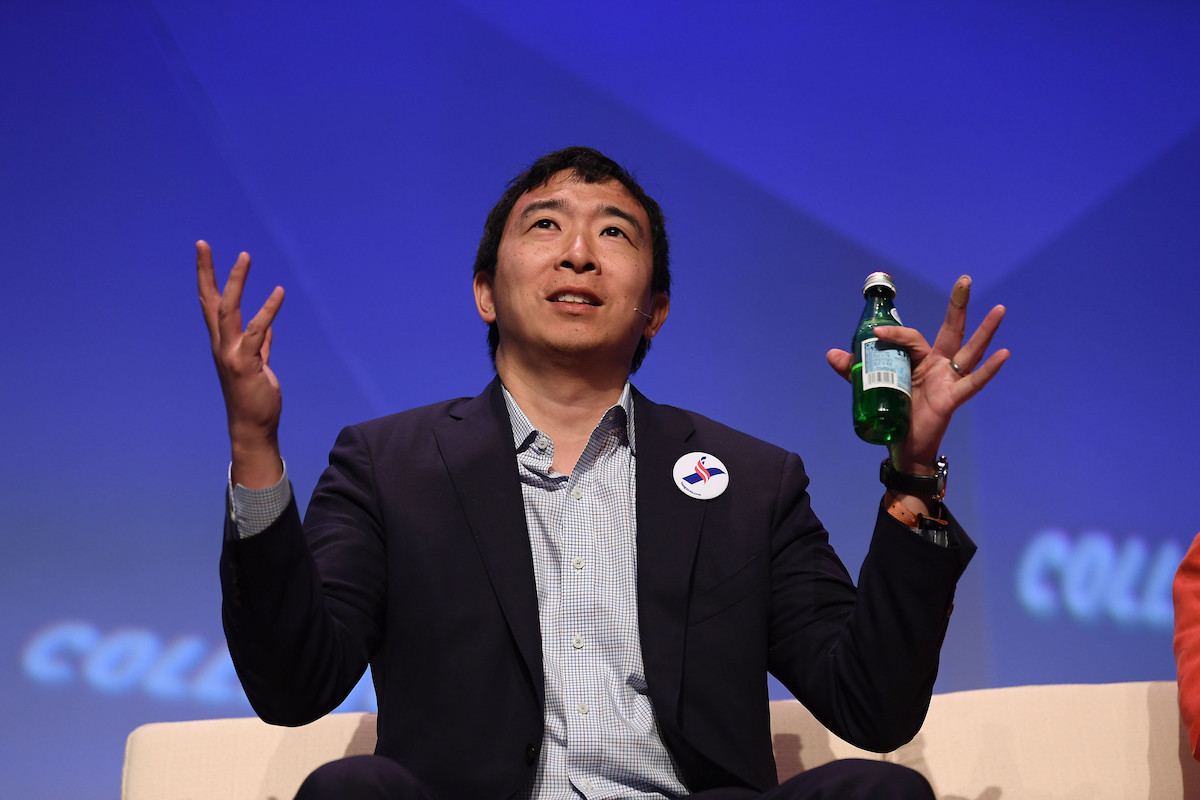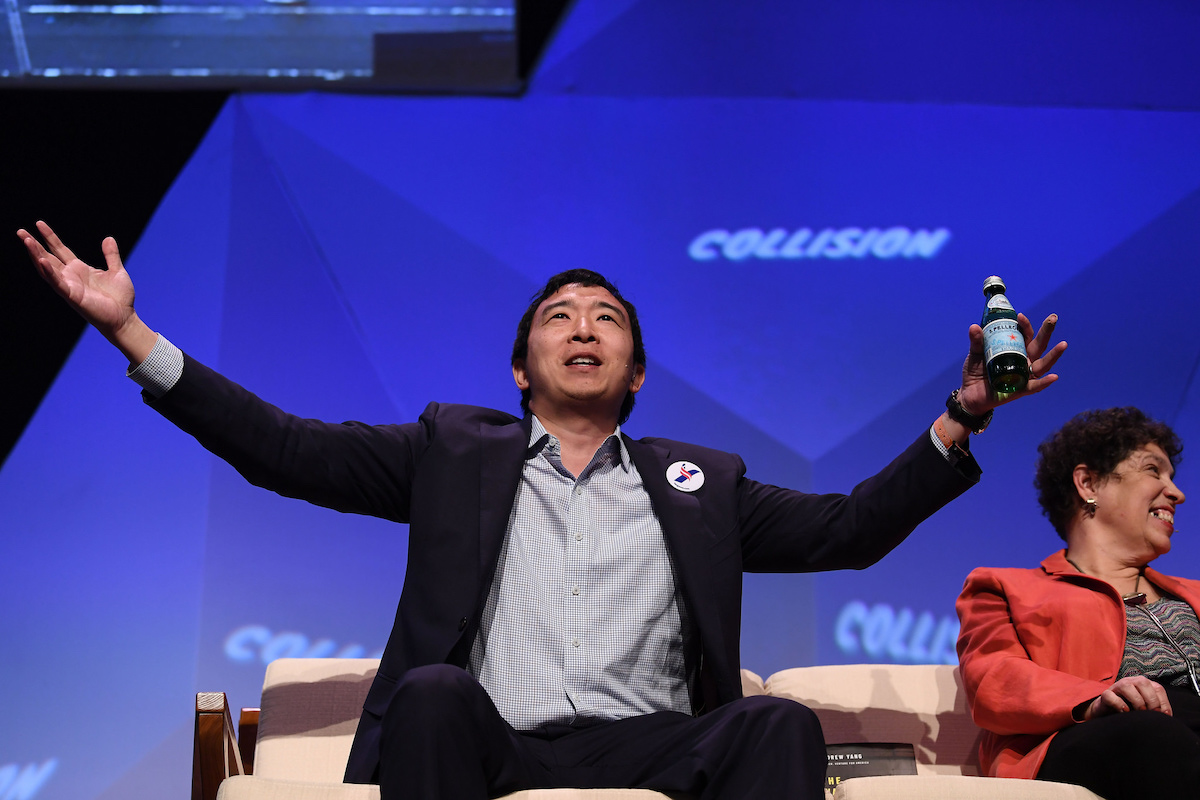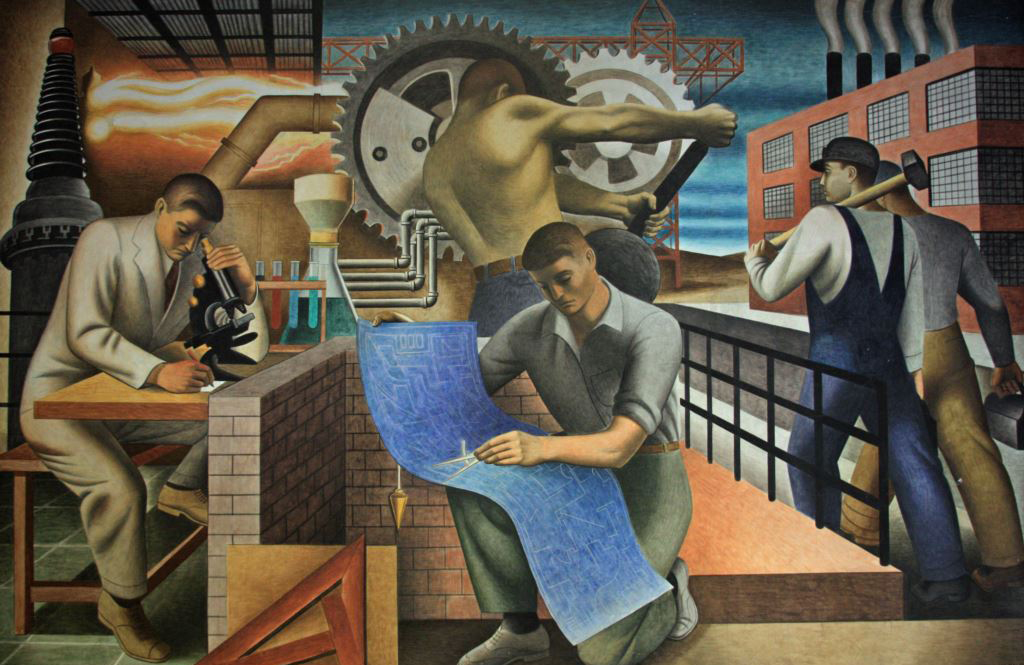recent
Why UBI Ought to Appeal to Conservatives
Republicans balk at the idea of UBI because it seems like an extreme version of your standard government handout. But it isn’t.

Republicans are traditionally hostile to what they call government “hand-outs.” This is not because they believe people shouldn’t get what they need. Rather, conservatives believe that people should get what they need in the most efficient way possible. Which, to the Republican mind, is almost certainly never going to be a program run by the federal government.
The basis for this argument is that big government has two major problems. The first is a knowledge problem. It doesn’t know exactly what is going on out there in the wider world, nor what the best solutions might be. The second is an execution problem. Whatever the government does set as a goal, it’s rarely in a position to enact this plan efficiently. The solution to the knowledge problem is decentralization: give more decision-making power to those closer to the ground where a policy is going to be implemented. The solution to the execution problem is the free market. Let businesses figure out what the best course of action is, because they’re actually incentivized to do so. This is, at least, the basic idea.
There is a beautiful exposition of this idea in a famous paper by the conservative economist, Friedrich Hayek. Writing in 1945, Hayek argued that “scientific knowledge” covers less than we tend to assume—which is to say, everything. What he means by scientific knowledge is essentially knowledge of how things work generally. There are laws which describe how atoms generally work. There are also laws—albeit slightly more fungible ones—which describe how humans form beliefs or fit into a larger cultural context. This is no doubt extremely useful information. But what we miss when we obsess over this kind of knowledge is knowledge of the specific.

By specific, Hayek had in mind knowledge that’s bound to a particular time and place. This, for instance, is why you still have to do on-the-job training after you go to college. A university is in a position to teach you about how the world works generally, not how a particular circumstance is going to play out. This is also what you encounter if you spend time with someone who is familiar with a particular expanse of wilderness or their back garden. There are general principles at play here—of plant species, of soil conversation—but the thing they understand that no one else does is what makes their terrain different to everyone else’s: it is a unique thing located in a particular place. The government, like the university, is not in a position to gain this kind of local knowledge. That’s why government programs don’t work—or at least tend to be much less efficient than they are meant to be.
This is why conservatives are reflexively hostile to Universal Basic Income. On the face of it, it’s simply a government program. And, even worse, it seems to be a program implemented with even greater ignorance than the usual fare. But there are several good reasons to question this initial suspicion.
Let’s consider Democratic candidate Andrew Yang’s proposal. The bare bones of it are that everyone over the age of 18 gets $1000 per month, no strings attached. For the sake of argument, let’s set aside the problem of paying for it. Let’s also set aside the question of whether people would in fact spend that money wisely. These are important practical matters, but they’re separate from the question of whether a UBI policy aligns with important conservative ideals.

The first point of agreement between Republicans and proponents of UBI is about what the government is good at: relatively little. This is one of Yang’s favorite points. A government program with a bunch of bureaucrats operating file-the-proper-paperwork mechanisms is bound to have some inefficiencies. But, as Yang points out, what the government does well is promptly and reliably sending out a load of checks in the mail. Republicans balk at the idea of UBI because it seems like an extreme version of your standard government handout. But it isn’t. It actually eliminates most of the government subsidies against which Republicans have traditionally marshaled principled arguments.
The second point worth considering is what it means to put that money in the hands of individual Americans instead of the federal government. It is the ultimate vote for the free market. It’s no longer the government dictating what the best use of that money would be. That money is going straight to the people who have the most intimate, on-the-ground knowledge of the particulars of their life circumstances: themselves. I can’t personally imagine anyone more capable of doing the job—especially not a government bureaucrat. It is, in fact, the opposite of the government telling people what to do and how to do it.
The third point of agreement is a little bit trickier but no less important. That’s the argument that this will better enable people to acquire and keep jobs rather than encourage them from living the ($12,000 per year) life of government-subsidized leisure, as is often imagined. The reason to believe this has to do with complex factors that contribute to someone’s inability to hold a job. The assignment of construction union jobs, for example, is based on seniority, so when you’re starting off you don’t know how many hours you’re going to get—this week, or this season. You need to earn the right to stability, and there are many things that can get in the way of putting in the ground work to rise up in the ranks. Without a safety net, people who might otherwise be able to succeed in this job fail because they are trying to paper over short-term problems. UBI gives people like these the flexibility to do what they need to do in order to maintain their employment.

As Americans, we have reached a point in our political discourse where a loss for the other side constitutes a win for our own. To combat this trend it is more important than ever to reconnect with our goals and principles, the ones at the core of what we believe will be best for society. Whether or not you accept them, Republicans have well defined principles. Opposing every proposal made by a Democrat has not traditionally been one of them, and it is more important than ever to take the possibility of shared ideological real estate seriously. And while the arguments I’ve made here probably won’t flip an ardent conservative into a member of the Yang Gang, they should give us pause to engage with an idea about which we might at first be skeptical.






